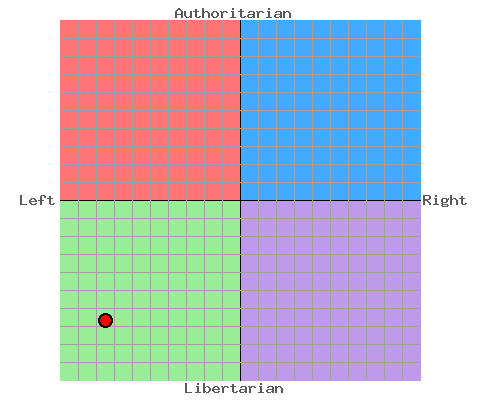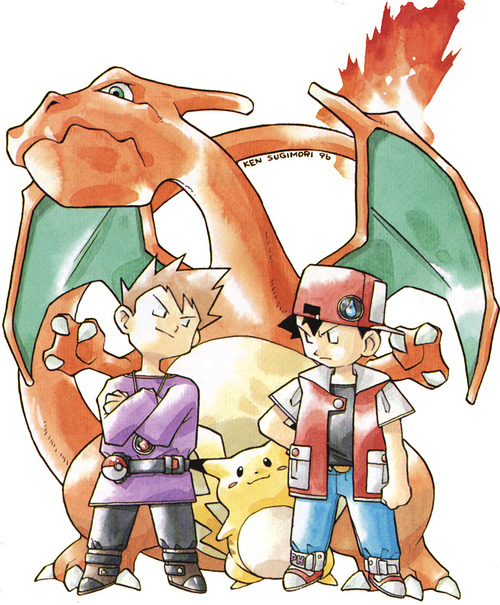The Beauty of Picross
April 26th, 2013
I’ve only just started the 15×15 puzzles, but I thought that I’d jot down a few ideas about Picross DS.
- Although Picross can sometimes seem impenetrable, the player can never get stuck, it’s all a matter of looking at the numbers and figuring things out logically.
- Hidden behind the simple premise are a range of deduction techniques that the player internalises through play. One of the game’s strengths is how these techniques organically emerge from the basic set of rules. You can read about them here.
- Because the player makes deductions by adding information to the board and deductions are made based on the current available information, every time a deduction is made, the nature of the puzzle is fundamentally altered. So in order to solve a puzzle, the player must continually re-adjust their mental orientation.
- The player can often make more than one deduction at the one time, so two players can solve a puzzle in two entirely different ways.
- Picross is about the way small actions build to a greater whole.
- Because information is Picross’s currency, filled squares are just as important as crossed squares, even though crossed squares don’t etch out the image. This is why punctuation is so critical.
- There should be a third camera control option for 15×15 puzzles, where the grid is large enough that the player must manually control the camera, that allows the player to move the camera with the d-pad and fill in squares with the stylus. This would prevent the player from having to manually switch back and forth between the scrolling and input functions.
Like Crosswords DS, which I’ve been playing semi-regularly for 3 years now, I guess it’ll take me a long time to finish Picross DS.
Microtransactions: Breaking Stuff
April 24th, 2013
Breaking the News-Previews-Reviews Trinity
Thanks to the likes of Polygon and the collective efforts of Simon Parkin (I’m generalising, obviously, but these are two key examples), games journalism has made great strides over the past few years and “features” are now a significant part of most games press websites. Still, though, the uptake to long-form writing on a single game has been slow to say the least. Game-specific discussion pieces free writers from the cover-everything nature of reviews, allowing them to develop a voice and a style, assets which most games sites lack. I guess it’s up to bloggers like us to carry the torch for long-form games discussion.
Breaking the Tyranny that Publishers have over Players and Criticism
This paragraph was originally part of the preface to Rethinking Games Criticism: An Analysis of Wario Land 4.
Publishers are the dictators of the video games industry. Through trailers, controlled previews, planned leaks, media events, early access to review code, and “game journalists” who deliver PR straight from the horse’s mouth without scrutiny, publishers fuel the hype machine which sets the tone for the initial 4 months of a game’s release. The anticipation builds a near impenetrable wall of positive assumption of a games quality pre-release, which the majority of game reviewers do little to challenge. They either get caught up in it or just can’t overcome it individually—given their audience comes into a review expecting their opinions, shaped by the marketing, to be validated. This system, prolonged by DLC, traps players in a self-fulfilling cycle of purchases, which ensures continual cash flow for publishers. To discuss a game well past irrelevancy, like Wario Land 4, is therefore an act of rebellion, a move to show players an alternative to drip-fed corporate capitalism.
Freedom Vs Control
Freedom is an impenetrable beast. The positive associations of the word and the dominance of the American ideology, which ensures that said associations are always upheld, make it hard for someone to vouch for authorial control, but that’s what I’d like to do today. Freedom—as in absolute freedom, the kind that this heading is most concerned with—is destructive. You give too much freedom to a society and people will eat and rape each other. You give too much freedom to the markets and the financial institutions will rob the people of democracy. You give too much freedom to a player and they’ll choose the path of least resistance, thereby bypassing the education needed to develop their mastery of the game. Whether it be an open world game with a world so large that the designers can’t bend the landscape narrowly enough to ensure the player’s rigorously tested on the game mechanics or a strategy RPG where the player can customise their party to the point that they don’t have to play strategically, freedom can be a corrosive force in game design. Players, like students, need the guidance of a teacher before they can be let loose on their own. The more I think about, the more I believe restricted-to-freer practice is the only way to go when it comes to offering freedom in games. It seems that I haven’t finished with this idea just yet.
Microtransactions: With a Vengence
April 18th, 2013
About 4 years ago, I started a semi-regular series of articles called Microtransactions. In these posts, I’d compile comments that were too long for Twitter, but not long enough to warrant their own article. Given that I’ve built up a few notes over the past 2 years of writing this Wario Land book, and not all of them can amount to their own post, I figure that it’s time for me to resurrect this long-forgotten series.
Cooperatives in the Business Side of the Trigon Theory
As a democratic socialist, I’m big on cooperative enterprises. When the people who make or use the services or products of a business own the business (ie. democratic ownership), instead of working to maximise profit for shareholders, like most current, privately-owned businesses, the company works for its members and the betterment of its services or products. Richard Terrell’s trigon theory of games, which you can read about here or listen about here, assumes that business’s only interest is to maximise profit for shareholders. I’m curious then, if video game companies were owned by their developers or fan base, how would that change the theory. I’d say that it’d significantly weaken the influence that business has over games (as for cooperatives, profit is necessary to survive, but it’s not the core part of their business) while strengthening the art side (as the workers would be freed from the tyranny of concentrated power at the top).
Information as Cultural Capital
About a month ago, my partner asked me to watch an episode of Miranda with her. Miranda is a UK comedy show about a middle-aged lady, Miranda, and her friends running into all sorts of self-deprecating scenarios. I didn’t think much of the show, I don’t care much for TV, but the comedy reminded me of a growing trend that I’ve noticed.
Many of the jokes in Miranda are based on the clique language Miranda and her friends use within their tight-knit circle. In many instances, it’s as though they try to make a “thing” or a “scene” out of nothing, with pop culture associations as their tool of choice. This form of comedy, I feel, is indicative of the nature of information in this current age. Information is no longer something that you know and can learn from, it’s now a fashion, a form of cultural capital. If you know something about something then you have enough capital to pretend to others that you belong to a particular membership group, which can make one appear cultured or sophisticated. It’s kind of like hipster culture, but with words replacing dress.
Social media has certainly made this way of thinking increasingly more prevalent. These networks operate on two foundations: following others (cultural membership/tribalism) and knowledge as capital (short bursts of text being the primary unit of exchange). A lot of what goes on in social media, whether people like it or not, is the use of information to define one’s brand/place their brand amongst brands which are advantageous to them. Knowledge is often used as a commodity. The contents aren’t important. What’s important is what underlying assumptions come from the information. This is exactly what Miranda and friends do when they make up silly catch phrases and nonsense words. What they say isn’t important. What’s important is that what’s said has a certain fashion which creates comical associations.






 Game Design Companion: A Critical Analysis of Wario Land 4 - $7.99
Game Design Companion: A Critical Analysis of Wario Land 4 - $7.99 Level Design: Processes and Experiences
Level Design: Processes and Experiences Speed Boost: The Hidden Secrets Behind Arcade Racing Design - $5.99
Speed Boost: The Hidden Secrets Behind Arcade Racing Design - $5.99 Adventures in Games Analysis: Volume I - $5.99
Adventures in Games Analysis: Volume I - $5.99







